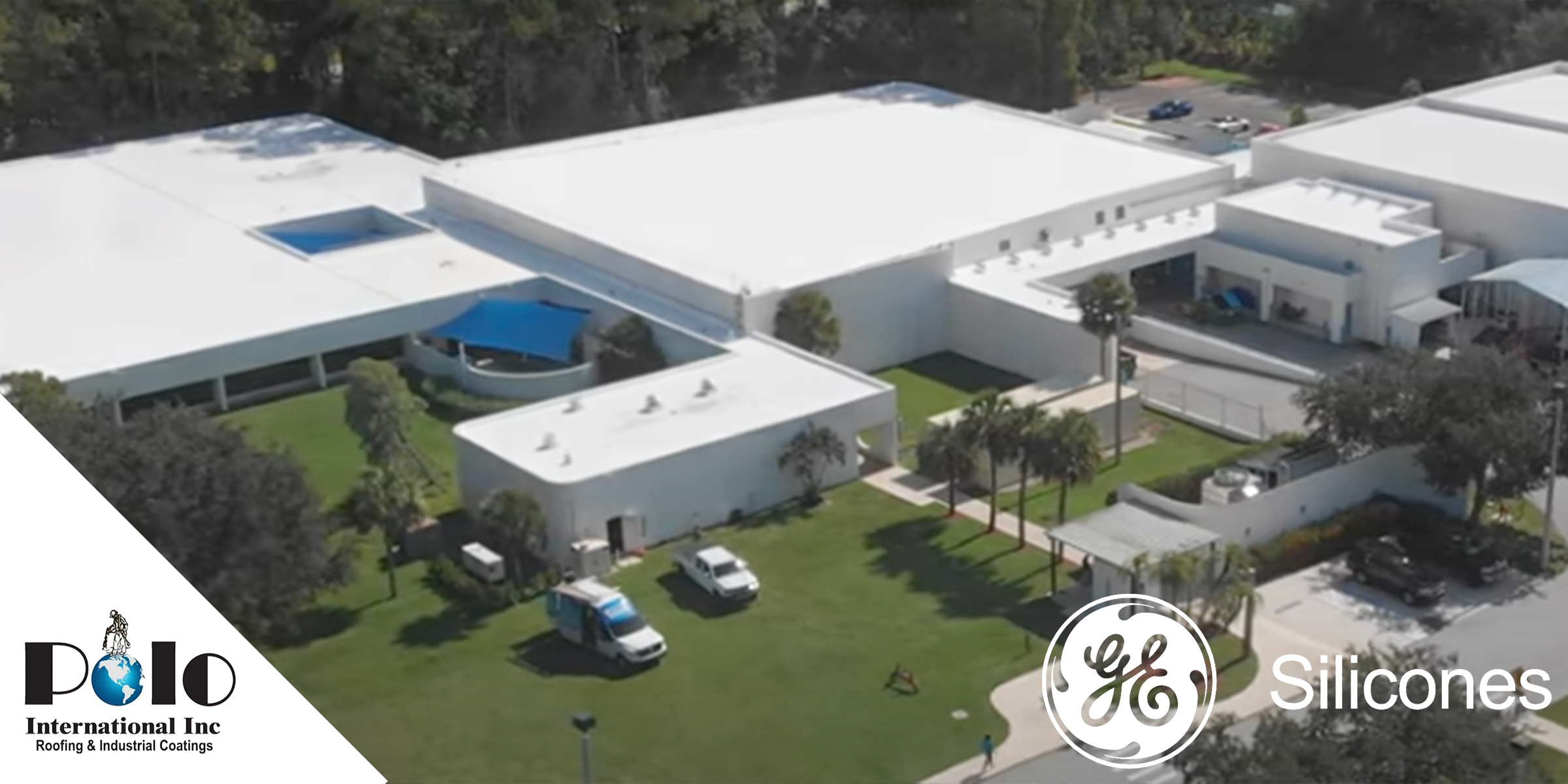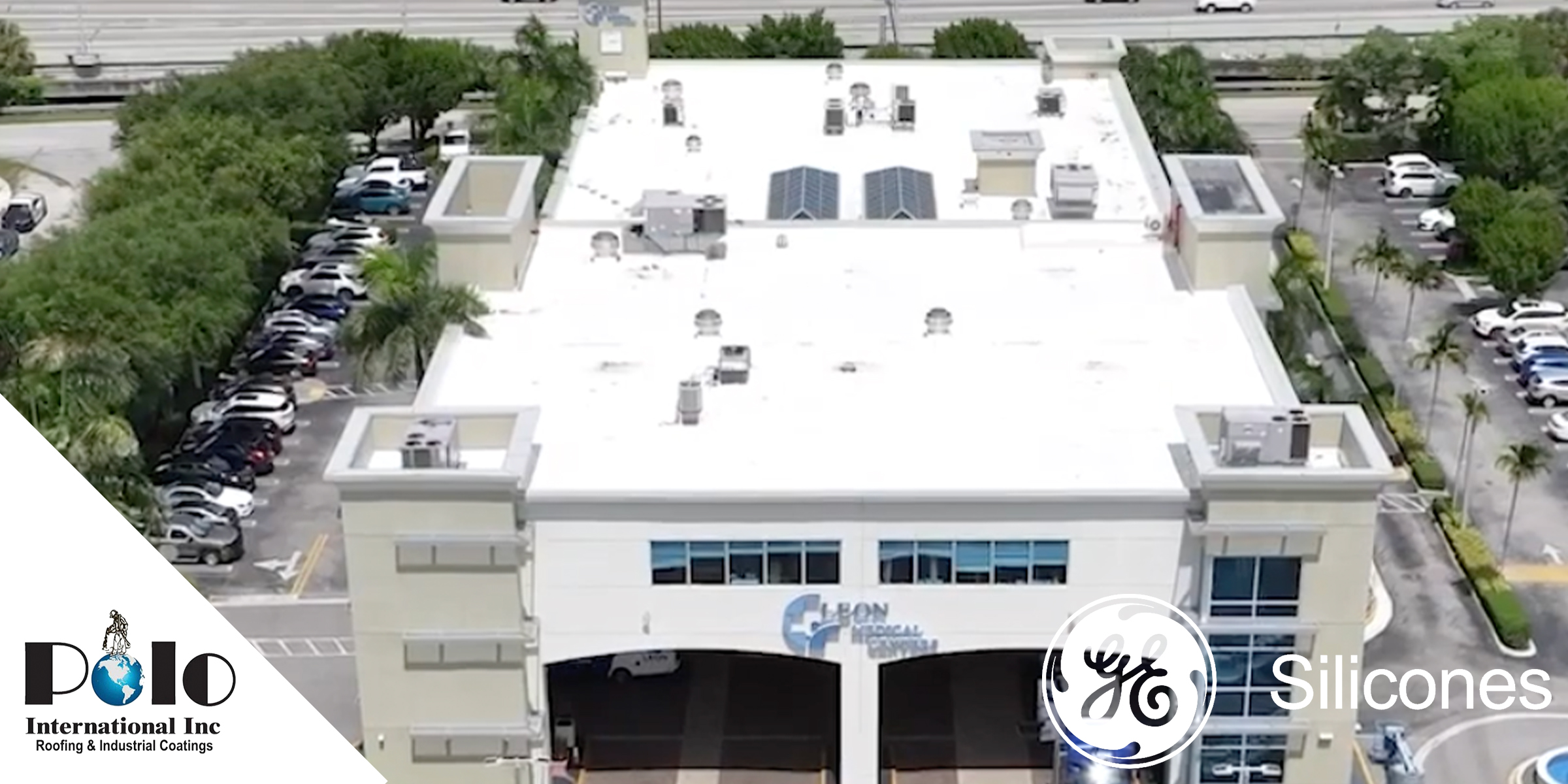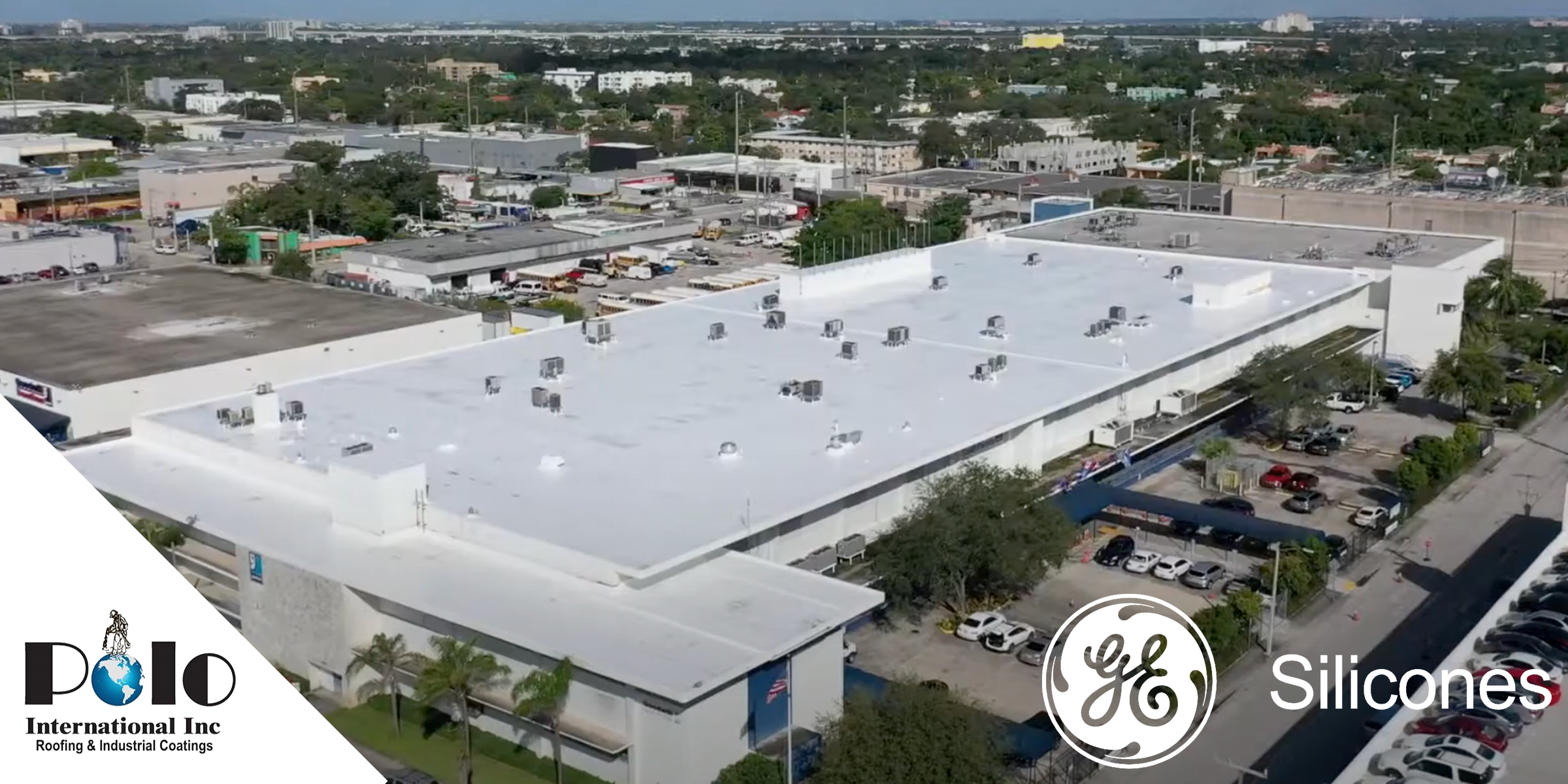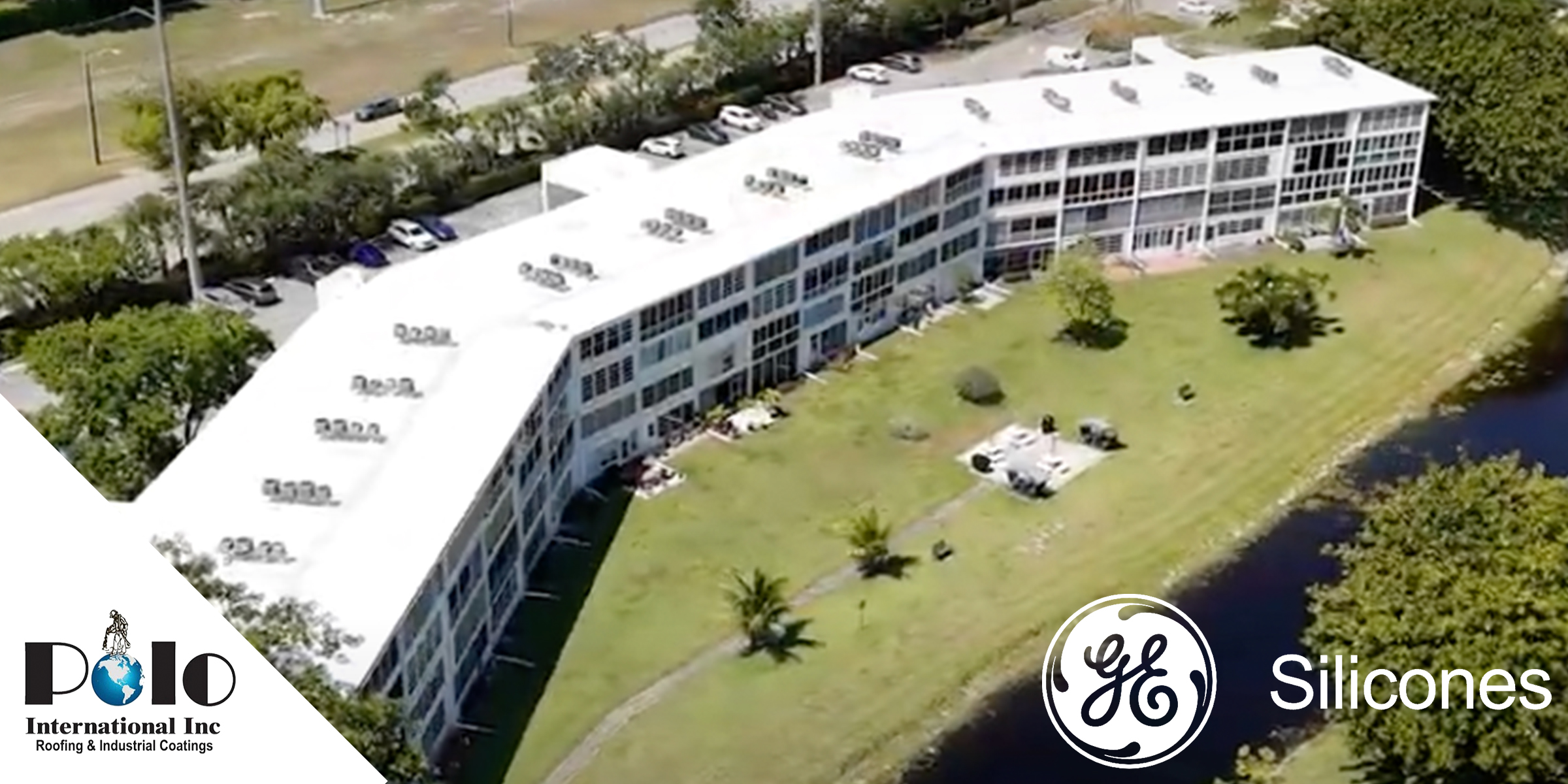
Silicone reflective roof coating systems have continued to grow in popularity as property owners and management companies learn the advantages. Silicone roof coating may look identical to conventional roof materials, they could not be more different. The differences are able to provide numerous benefits over traditional roofing materials.
The roof of a building is an essential component of the structure and requires a careful investment to ensure its longevity. Continue reading to learn more about silicone roof installation and how it can benefit your property. If you would like to discuss your silicone roof coating installation project, please contact the experts at Polo International today for assistance.
What Is Silicone Roof Coating Made Of?
Silicone reflective roof coating is primarily comprised of a spray polyurethane foam that is covered in an extremely reflective, solvent-free, and insulative coating. The material is entirely based on the naturally occurring element silicone that has been researched for over eighty years. Over the course of those eight decades, researchers have developed a wide range of applications for silicone.
Some of the most popular applications and forms of silicone include sealants, gels, oils, rubber, and greases. Silicone reflective roof coating sets itself apart from traditional petroleum-based roofing materials by using spray polyurethane foam and specialized coating to create waterproof barriers and seamless insulation.
Characteristics Of Silicone Roof Coating Systems
Using silicone roof coating can offer a large number of advantages that make it a better investment when compared to traditional roofing materials. The way silicone roof coating reacts to the local environment and elements is one such advantage. Reflective silicone roof coating systems are extremely flexible over a wide range of temperatures.
The silicone can remain flexible in temperatures that extend from -200 degrees Fahrenheit all the way to over 600 degrees Fahrenheit. This flexibility allows the silicone roof coating to remain extremely elastic during the harshest weather conditions. The silicone roofing system can also endure heavy rains thanks to its completely waterproof properties.
Silicone reflective roof coating can also resist the harmful UV-rays produced by the sun. Traditional roofing materials will begin to breakdown from UV and ozone exposure. This is an incredibly useful feature because it can save property owners and management companies money on future maintenance, repair, and energy costs.
Not only is silicone roof coating a great investment but it is also an eco-friendly commercial roofing choice.
Silicone Roof Coating Is Convenient
One of the major advantages of choosing silicone reflective roof coating systems over traditional roofing materials is their convenience. The installation of traditional roofing materials can be extremely disruptive. This is especially true if the building is a busy business. The materials are also considered toxic and cause an awful smell during installation.
Installing a silicone coating is much less disruptive and will not alter or damage the pre-existing roofing. In addition to the numerous benefits offered by silicone roof coating, it is also considered an affordable investment. When it comes to choosing the best material for commercial roof installation, it is hard to beat the numerous advantages offered by silicone roof coating systems.
Related Post
What is a silicone roof coating
What is a silicone roof coating system




